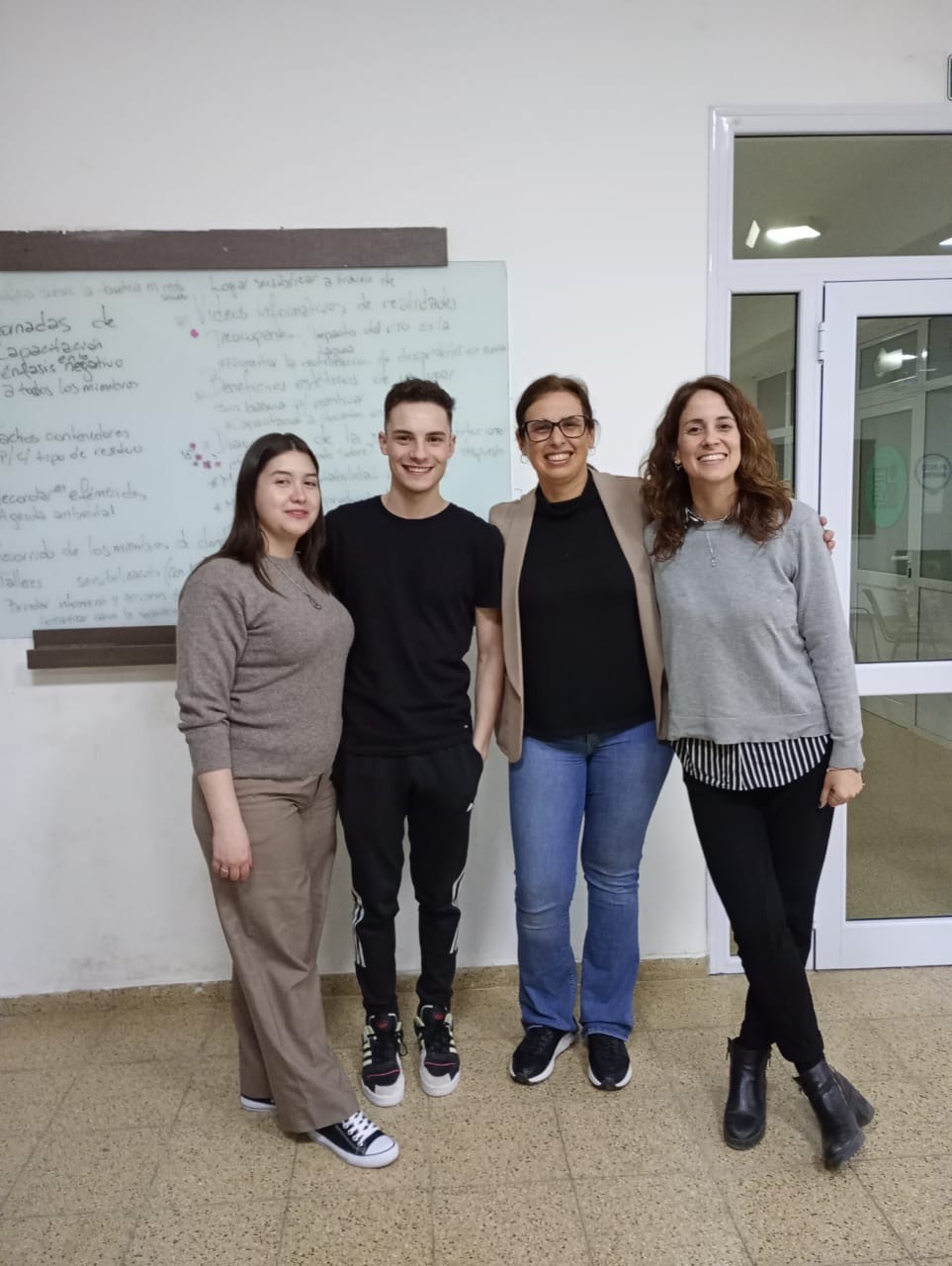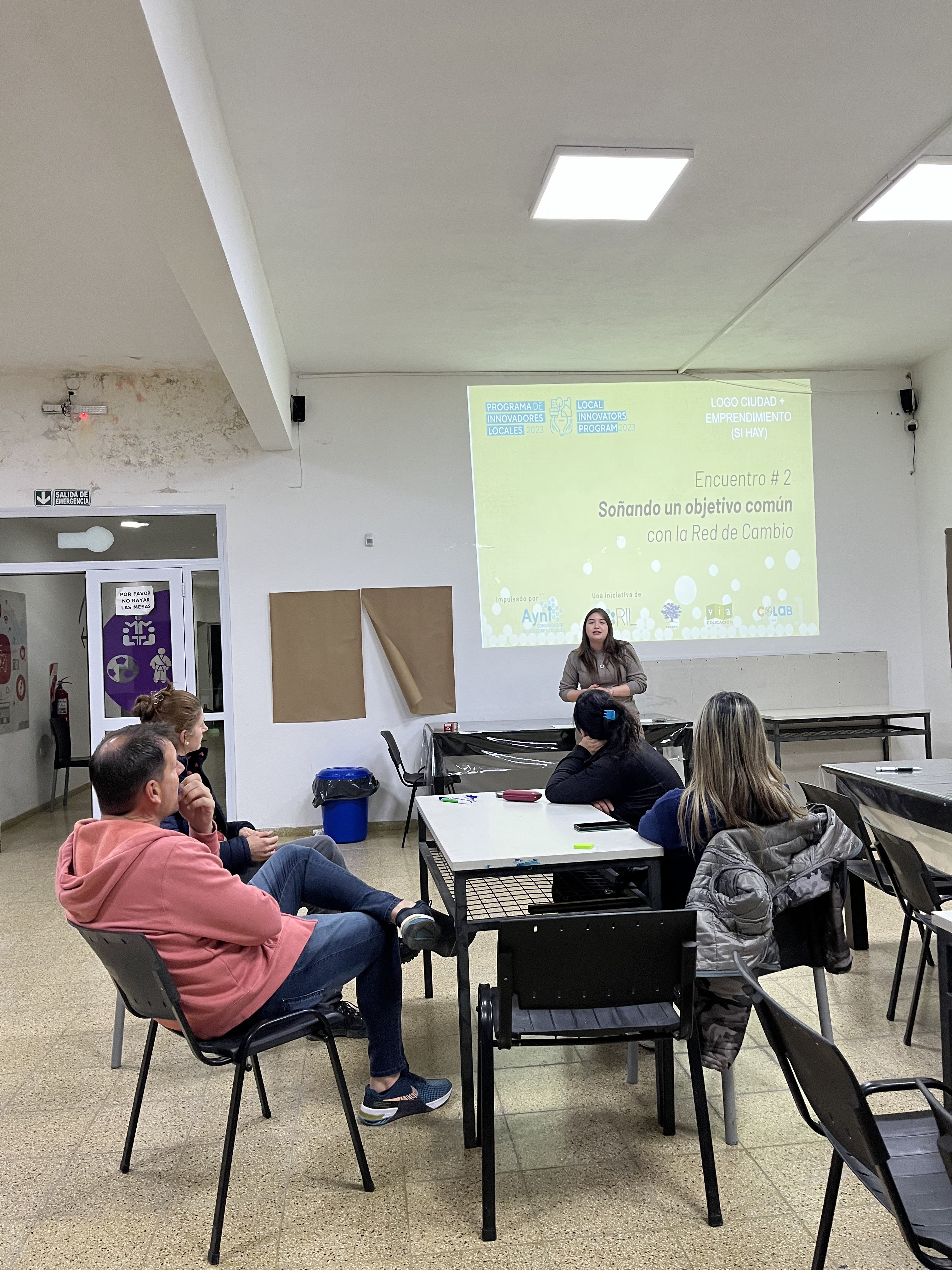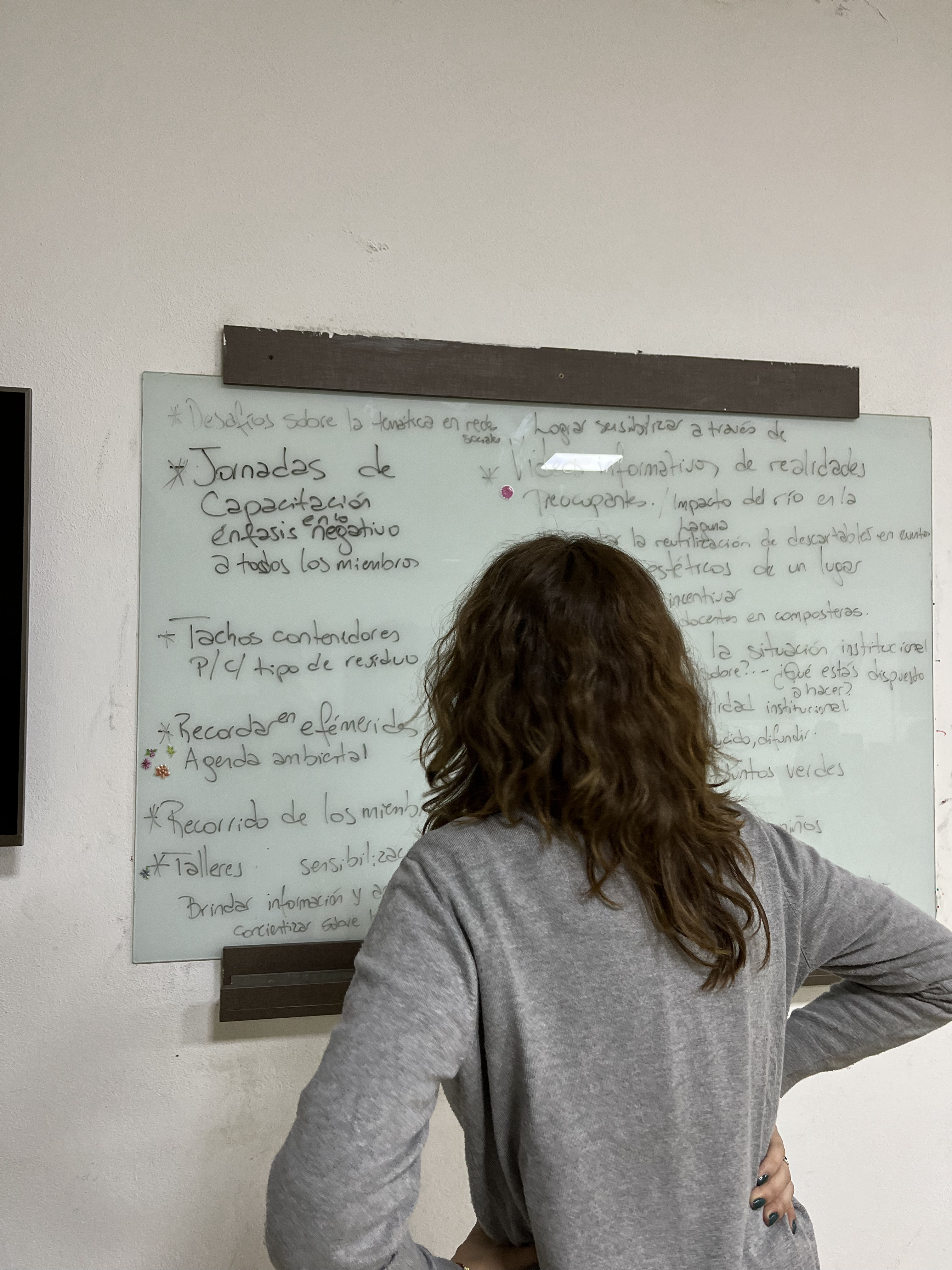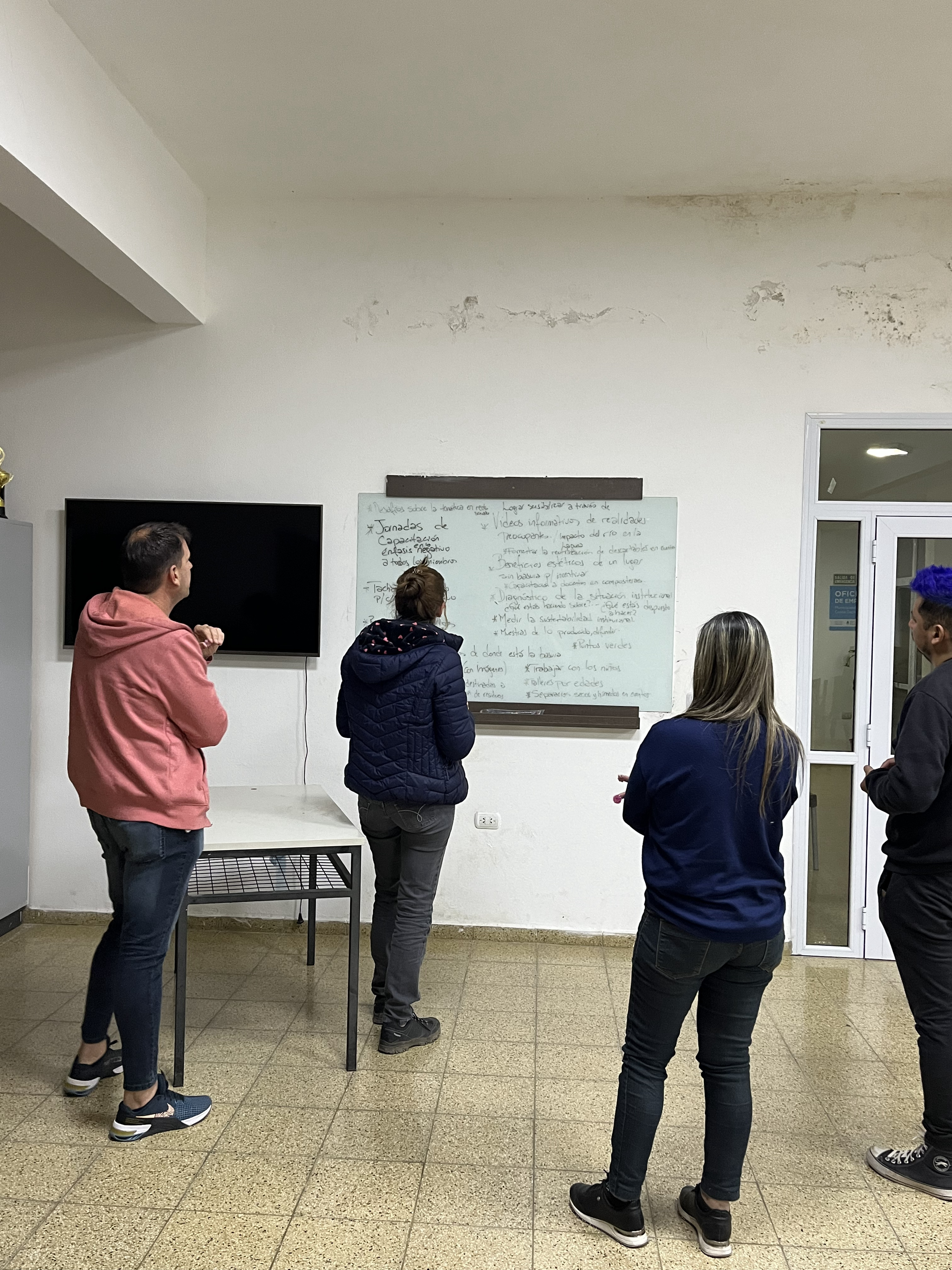We Are All Part
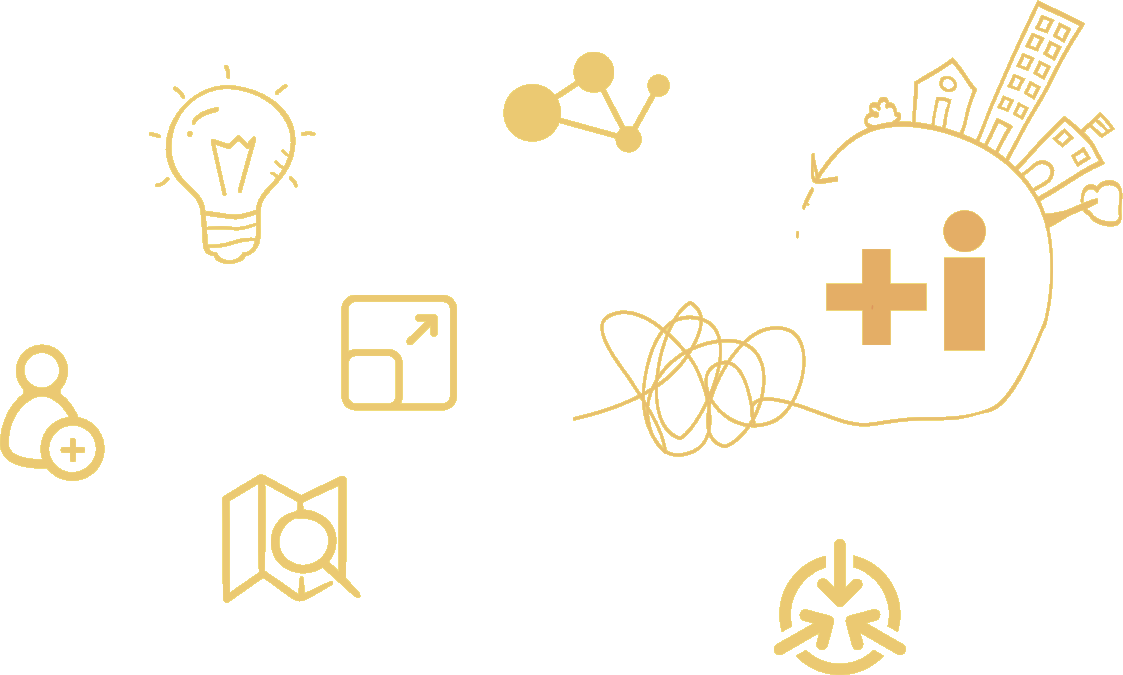
Municipality
Category / Sub-Category / Topic
Environment, Waste management
Type of investment needed
Grant
The challenge
The project
Know more...
Investment
(*): In kind/pro bonus
(**): Financing
Funds
Needed
Covered
Solicited
Investment
(*): In kind/pro bonus
(**): Financing
Five hundred meters of wire (**)
u$s 217.27
u$s 0.00
u$s 217.27
Fifty fence posts (**)
u$s 2158.27
u$s 0.00
u$s 2158.27
Fifty meters of greenhouse nylon (**)
u$s 172.66
u$s 0.00
u$s 172.66
Garden and composter tools (screws, pitchforks, rakes, nails, hose) (**)
u$s 530.00
u$s 0.00
u$s 530.00
Eighteen differentiated bins (**)
u$s 3159.71
u$s 0.00
u$s 3159.71
Booth structures for artisans (**)
u$s 2877.70
u$s 0.00
u$s 2877.70
Warehouse for recoverables deposit (**)
u$s 43165.47
u$s 0.00
u$s 43165.47
sound (**)
u$s 575.54
u$s 0.00
u$s 575.54
lighting (**)
u$s 287.77
u$s 0.00
u$s 287.77
artists (**)
u$s 1438.85
u$s 0.00
u$s 1438.85
Videos (**)
u$s 633.09
u$s 0.00
u$s 633.09
Yolanda Law Professional Trainer (**)
u$s 431.65
u$s 0.00
u$s 431.65
Budget Advisor Professional (**)
u$s 1726.62
u$s 0.00
u$s 1726.62
agent (**)
u$s 2877.70
u$s 0.00
u$s 2877.70
Agent in charge of recyclers survey (**)
u$s 345.32
u$s 0.00
u$s 345.32
Circular economy professional trainer (**)
u$s 1726.62
u$s 0.00
u$s 1726.62
Funds
Needed
Covered
Solicited
quinientos mts alambre (**)
u$s 217.27
u$s 0.00
u$s 217.27
cincuenta postes cerco (**)
u$s 2158.27
u$s 0.00
u$s 2158.27
cincuenta metros nylon invernadero (**)
u$s 172.66
u$s 0.00
u$s 172.66
herramientas huerta y compostera (tornillos, horquillas,rastrillos,clavos, manguera) (**)
u$s 530.00
u$s 0.00
u$s 530.00
dieciocho cestos diferenciados (**)
u$s 3159.71
u$s 0.00
u$s 3159.71
estructuras de puestos para artesanos (**)
u$s 2877.70
u$s 0.00
u$s 2877.70
galpón deposito recuperables (**)
u$s 43165.47
u$s 0.00
u$s 43165.47
Funds
Needed
Covered
Solicited
sonido (**)
u$s 575.54
u$s 0.00
u$s 575.54
iluminación (**)
u$s 287.77
u$s 0.00
u$s 287.77
artistas (**)
u$s 1438.85
u$s 0.00
u$s 1438.85
Videos (**)
u$s 633.09
u$s 0.00
u$s 633.09
Funds
Needed
Covered
Solicited
profesional capacitador ley yolanda (**)
u$s 431.65
u$s 0.00
u$s 431.65
profesional asesor presupuesto (**)
u$s 1726.62
u$s 0.00
u$s 1726.62
agente a cargo (**)
u$s 2877.70
u$s 0.00
u$s 2877.70
agente a cargo del relevamiento de recuperadores (**)
u$s 345.32
u$s 0.00
u$s 345.32
profesional capacitador economia circular (**)
u$s 1726.62
u$s 0.00
u$s 1726.62

